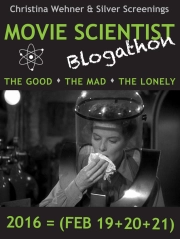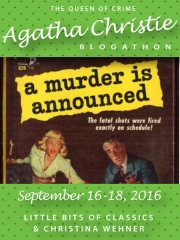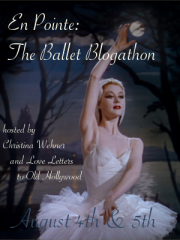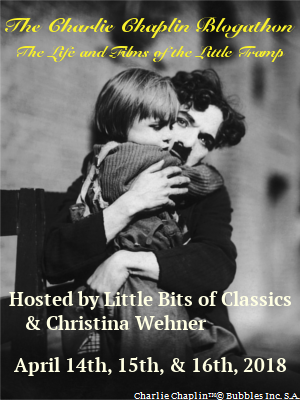 I can definitely see why people like this movie, and why it has endured as one of the great classic adventure tales and I can also definitely see why some people find it annoying. It really depends on how much you like adventure and the chemistry of the leads and how much you can overlook the blatant romanticization of British Colonialism in India.
I can definitely see why people like this movie, and why it has endured as one of the great classic adventure tales and I can also definitely see why some people find it annoying. It really depends on how much you like adventure and the chemistry of the leads and how much you can overlook the blatant romanticization of British Colonialism in India.
The movie was inspired by the poem by Rudyard Kipling, also called “Gunga Din,” which recounts a soldier’s memories of a water carrier, Gunga Din, who is abused by all the army, but who faithfully brings them water, no matter the danger to himself. In the end, he dies saving the life of the solider who utters the line “You’re a better man than I am, Gunga Din.”
However, the movie is really less about Gunga Din and more about what we now call a bromance between the three main characters: Sergeant MacChesney (Victor McLaglen), Sergeant Ballantine (Douglas Fairbanks, Jr,) and Sergeant Cutter (Cary Grant). They are like the Three Musketeers, only in India, with the same high-spirits, mischief and utter loyalty to each other. They bicker and fight and always have each other’s backs.
MacChesney is the senior soldier and loves his elephant, Annie, and nurses her like he would a baby; Cutter is the class clown who has a thing for treasure, maps, and gold and seems to be an Indiana Jones in the making (without wishing to put any of the treasure in a museum); and Ballantine is dashing and in love, which threatens the entire bromance. He is in love with Emaline Stebbins (Joan Fontaine) and as soon as his enlistment is up, he is going to get married and run a tea shop, much to the disgust of Cutter and MacChesney, who want him to enlist for another nine years.
Meanwhile, the Thuggee cult, which worships Kali and seems to believe rather generally in killing for killing’s sake, are on the move and are threatening to sweep through all of India. The three men are sent out, with Ballantine only having a few days left on his enlistment, to meet the Thuggee. Coming along with them is Gunga Din (Sam Jaffe), who carries water and dreams of being a soldier. He also knows where there is a temple filled with gold, which very much interests Cutter. However, when he takes Cutter there, they find the Thuggee, and MacChesney, Ballantine and Gunga Din have to go rescue him.
The cast is almost all uniformly excellent. Eduardo Ciannelli makes a suitably creepy, if massively politically incorrect, guru who leads the Thugs and comes across as rather educated, despite his death cult. The British commanding officer is played by Montagu Love, who, whenever he opens his mouth, reminds me of his other role as the Bishop of the Black Cannon in The Adventures of Robin. Joan Fontaine also does well in a tiny role as the female obstacle to all that joshing brotherly love. After all, women and a tea shop! Soft!
 The one bit of casting I do not agree with is Sam Jaffe as Gunga Din. I am not really sure how old Gunga Din is supposed to be in the poem, but in the movie he is middle aged and plays him as such a simple guy that he comes across as mentally challenged, especially in the way he reacts in gratitude to the other men’s condescending attitude towards him and it feels very awkward. Perhaps it would have worked better if he had actually been a child instead of a grown man.
The one bit of casting I do not agree with is Sam Jaffe as Gunga Din. I am not really sure how old Gunga Din is supposed to be in the poem, but in the movie he is middle aged and plays him as such a simple guy that he comes across as mentally challenged, especially in the way he reacts in gratitude to the other men’s condescending attitude towards him and it feels very awkward. Perhaps it would have worked better if he had actually been a child instead of a grown man.
As I said, this movie is really just an adventurous romp and there is zero character development. The movie seems like three-fifths action sequences. It actually brings irresistibly to mind the Indiana Jones movies, especially the second one. There are elephants, a rickety rope bridge, treasure, a gold temple, snakes, native peoples chasing the heroes. It also has the kind of light-hearted adventure characteristic of Indiana Jones.
The movie was filmed on location in the Sierra Mountains, which stand in for the Khyber Pass, and really looks good. It took much longer to shoot than was originally intended, however, and they went so far over budget that even though the movie was a hit, it still lost money.
The role of Cutter was originally going to be played by Fairbanks, Jr. and Grant was going to play Ballantine, but Grant wanted to play the comic and so they switched roles. Cary Grant also has what is supposed to be a Cockney accent, though most people comment that it sounds half-hearted. However, since Cary Grant (when he was still Archibald Leach) really did have a Cockney accent from working in music halls before he brushed his accent up along with his image as the most suave man ever living, I would think he would know how to speak with a genuine accent. Perhaps he lost the knack, or perhaps I’m just used to a broader movie accent than most people actually have.
The big issue that most people have with the movie is the celebration of colonialism and how Gunga Din, in saving the British army, is essentially a traitor to his own people. I can definitely see their point. The condescending attitude the British adopt is pretty hard to take and if the rather juvenile MacChesney, Ballantine and Cutter are anything to go by, it’s hard not to sympathize a little with the impulse of the Thuggee to kill them. Also, pretty much every Indian role is played by people in body paint, which was standard practice during those years. However, I feel that this movie is really not essentially about Colonialism; it is more an excuse for adventure, male bonding, courage, and lots of fighting.
 The movie was directed by George Stevens, who was known for his comedies before he joined the army and saw, first hand, the affects of the Holocaust. He made movies like Woman of the Year, with Katharine Hepburn and Spencer Tracy, and Swing Time, with Fred Astaire and Ginger Rogers. However, after the war he was so affected by what he had seen that he never made another comedy or light-hearted film and instead made movies like Giant, Place in the Sun and Shane.
The movie was directed by George Stevens, who was known for his comedies before he joined the army and saw, first hand, the affects of the Holocaust. He made movies like Woman of the Year, with Katharine Hepburn and Spencer Tracy, and Swing Time, with Fred Astaire and Ginger Rogers. However, after the war he was so affected by what he had seen that he never made another comedy or light-hearted film and instead made movies like Giant, Place in the Sun and Shane.
Gunga Din ultimately is a very well-done movie, despite my complaints. It’s just not quite my cup of tea.









Theater Lover
October 1, 2014 at 5:23 pm
I used to date a guy — private Catholic school student who grew up to be a lawyer — who’ve LOVED this movie. I found it hard to get past the blatant racism and British colonial attitude to the child-like natives. But for Hollywood film making of the era, it’s a winner. Would love to see what a creative director could do with a remake.
LikeLike
christinawehner
October 1, 2014 at 6:12 pm
Yes, the racism was pretty hard to take, and especially cringe-worthy when the three were interacting with the people. A remake would be fascinating! It would be really interesting to bring out more of the aspect that is found in the poem, too, and have Gunga Din be more of the center of the story. It might be much more serious than the original, but I suppose that is part of what they did really well in 1939 with the sheer exuberance of the performers.
LikeLike
FictionFan
October 1, 2014 at 5:40 pm
I must admit Kipling isn’t my cup of tea at all, but Cary Grant might be enough to make up for that… 😉
LikeLike
christinawehner
October 1, 2014 at 6:15 pm
And it was really a very different role than I’m used to seeing Cary Grant in! I usually see him as the romantic leading man and it was great to see him as the comic relief with a more broad style of humor who is making fun of the man in love. 🙂
LikeLike
Rogerinho
February 26, 2018 at 3:58 am
Reblogged this on Blog do Rogerinho.
LikeLike